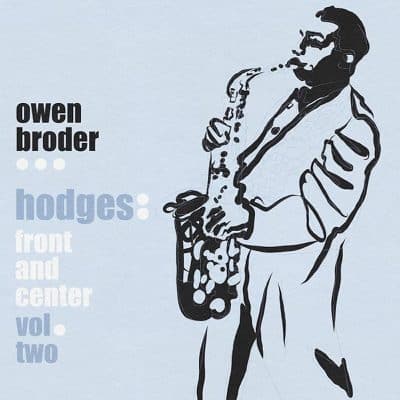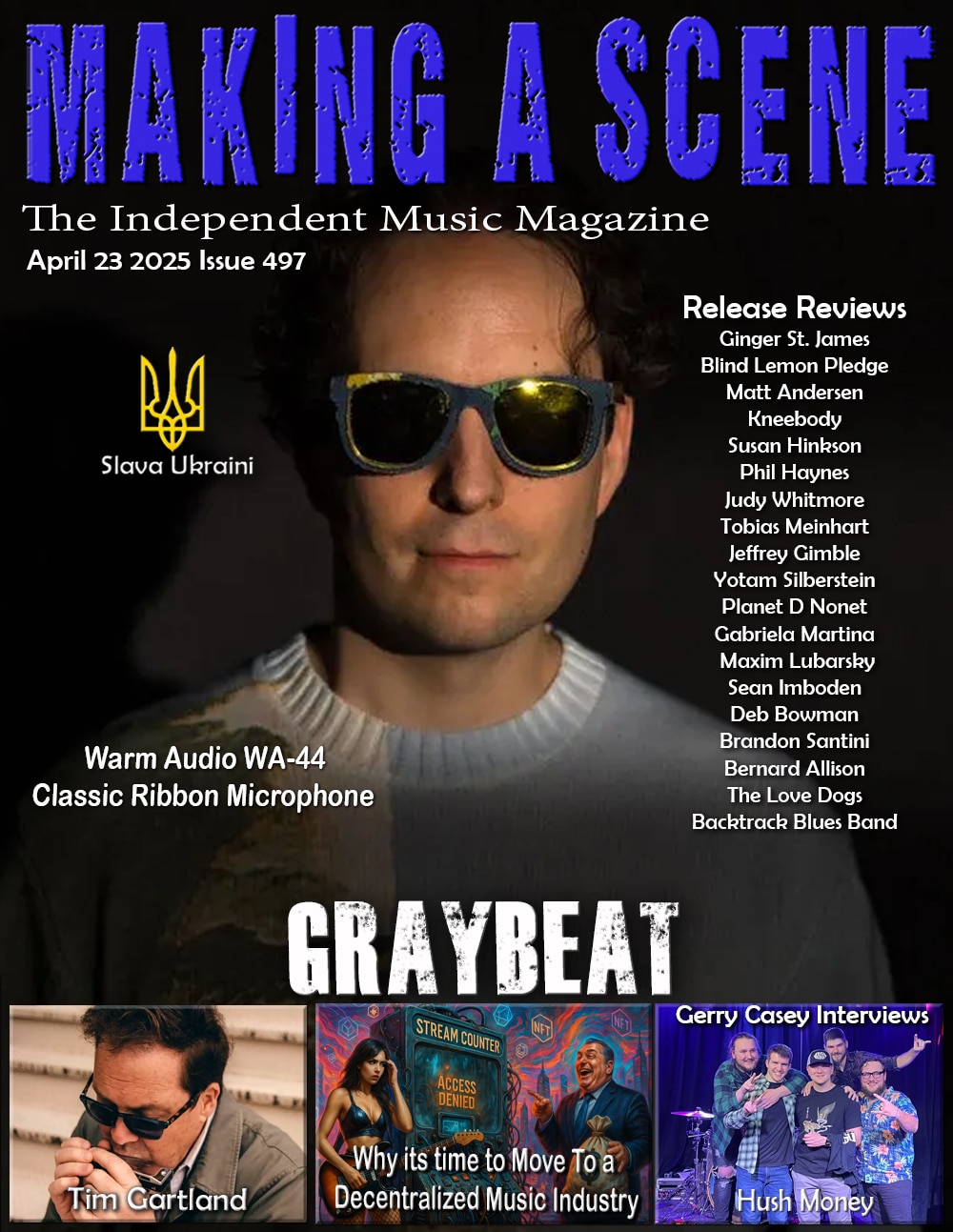Owen Broder Hodges: Front and Center Vol. 2
 Owen Broder
Owen Broder
Hodges: Front and Center Vol. 2
Outside in Music
Somehow, despite this writer’s affection for that sweet sound of Johnny Hodge’s alto saxophone that graced so many of Duke Ellington’s major records, we missed the first installment from two years ago in Owen Broder’s tribute to the altoist, dubbed “Rabbit.” Though the origins of that nickname puzzle us, it was common in that generation to bestow nicknames on the musicians – “Bird,” “Prez,” “Hawk,” and so on. Though Hodges is known by most as a principal soloist in Ellington’s big band, Broder’s project (both volumes) are inspired by the small combos co-led by Hodges and Ellington in 1959 and the two albums Back to Back and Side by Side though only three tracks come from those two albums. Broder dives into the Hodges songbook with even more tunes penned by Hodges in this volume. It’s not often that we hear vintage music from the Hodges’ era played today by contemporary musicians, ones that typically advance more modern-day fare than traditional swing and blues. Broder not only plays alto sax but also the baritone alongside trumpeter Riley Mulherkar, pianist Carmen Staaf, bassist Barry Stephenson, and drummer Bryan Carter. Half of these eight tunes were written or co-written by Hodges about whom Broder observed: a) a genuine love for the blues, b) an affection for ballads and medium tempos, and c) very riff based, inclined to repeat motifs that make his tunes so accessible.
Opener “Used to be Duke” traces to Hodges’ 1956 album of the same name, during the altoist’s five-year hiatus from Ellington’s band. The animated Staff and Broder inspire a kinetic turn from Carter on the kit and fiery trumpet form Mulherkar. “Wabash Blues” is one of the first jazz big band tunes, recorded originally in 1921 by Isham Jones and his Orchestra, that became a staple in Ellington’s repertoire. It’s more of a swing than a blues, a perfect vehicle for Hodges lyricism, and played fervently by Broder here. “Wabash Blues” and St. Louis Blues’ both appeared on Back to Back. The latter timeless tune from W. C. Handy is indeed a blues and rendered with deep feeling by this quintet with Mulherkar and Broder on baritone for this one, stepping forward. Remarkably, Broder applies his innate sense of lyricism just as well on the baritone as the alto, which is difficult to pull off.
Broder’s baritone takes the honors on “Back Beat” (which quotes “Now That I’m Beginning to See the Light”) and the balladic “Shady Side,” both written by Hodges and originally appeared on 1960’s Gerry Mulligan Meets Johnny Hodges. Staff, who has proved versatile in a variety of settings, is eminently at ease with this swinging fare. “Big Smack” is one where Hodges shared writing credits with Ben Webster as the altoist and tenorist collaborated on a series of combo recordings for Verve in the late ‘50s and early ‘60s. Broder plays alto on this highly energetic tune, so emblematic of that era of music, right before Coltrane and Miles began to turn jazz on its head. “Stompy Jones,” the lone entry from Side by Side has this contingent embracing the opportunity to free style. Broder soars on a clarinet-sounding alto and Mulherkar goes deep with muted trumpet to add contemporary flair over Stephenson’s sturdy walking bassline. Staff pounds the keys gleefully, as if at a church revival meeting. The album closes in scintillating fashion with Broder’s alto reading of one of Hodge’s most iconic solos on Ellington’s “The Star Crossed Lovers” from 1957’s Shakespeare-inspired Such Sweet Thunder. Sublime support comes from aching trumpet, bluesy piano, and chill-inducing arco bass to frame Broder’s emotive lines.
Music from this era shows the direct linkage of blues to jazz, brought home brilliantly by Broder and his quintet. It’s as much a tribute to the ‘Rabbit’ as a testament to how well-grounded these contemporary players are. While the music itself may not be especially challenging, they’re able to get a similar ‘feel,’ which is the most impressive aspect. If you’re hurrying to pick up Volume 1, this writer is right behind you.
- Jim Hynes
Buy Us a Cup of Coffee!
Join the movement in supporting Making a Scene, the premier independent resource for both emerging musicians and the dedicated fans who champion them.
We showcase this vibrant community that celebrates the raw talent and creative spirit driving the music industry forward. From insightful articles and in-depth interviews to exclusive content and insider tips, Making a Scene empowers artists to thrive and fans to discover their next favorite sound.
Together, let’s amplify the voices of independent musicians and forge unforgettable connections through the power of music
Make a one-time donation
Make a monthly donation
Make a yearly donation
Buy us a cup of Coffee!
Or enter a custom amount
Your contribution is appreciated.
Your contribution is appreciated.
Your contribution is appreciated.
DonateDonate monthlyDonate yearlyYou can donate directly through Paypal!
Subscribe to Our Newsletter
Discover more from Making A Scene!
Subscribe to get the latest posts sent to your email.













































